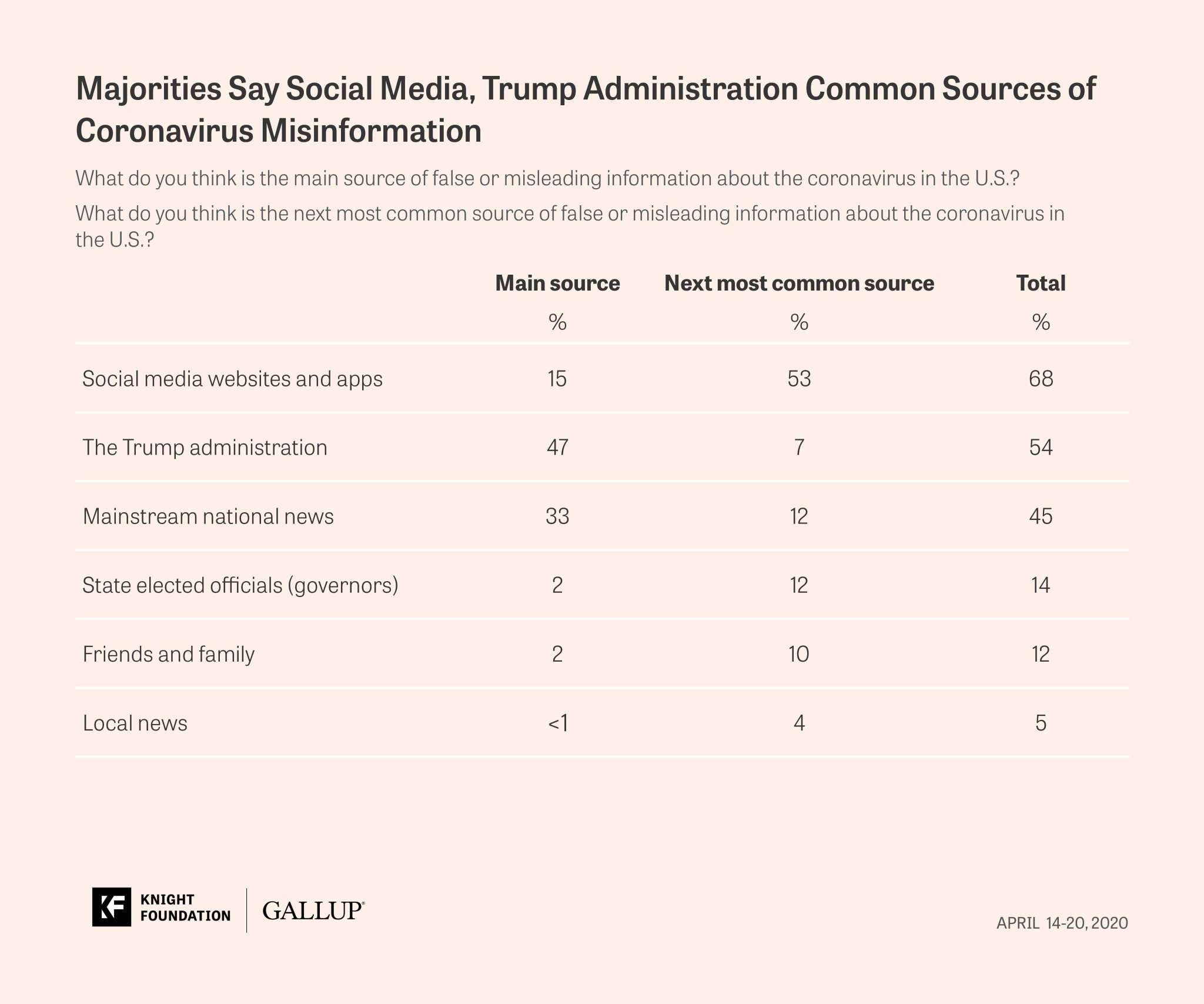A majority of U.S. adults think that misinformation about the the COVID-19 pandemic is a problem, according to survey results released Monday by Gallup and the Knight Foundation. And who are its sources?
Asked to identify the two most common sources of misinformation, a combined 68 percent name social media and 54 percent the Trump administration, though more give the Trump administration as their first response (47 percent) than social media (15 percent).

“82% of Democrats, 79% of independents and 73% of Republicans” think coronavirus misinformation is a major problem — but, not surprisingly, Democrats were vastly more likely to identify the Trump administration as a major source of misinformation (85 percent) than Republicans (4 percent). Meanwhile, 75 percent of Republicans identified mainstream news organizations as the main source of false or misleading coronavirus information, compared to just 2 percent of Democrats. So what you’d expect.

Fifty-eight percent of those surveyed said that they were “well-informed” about COVID-19, but 36 percent said they were overwhelmed by the amount of information available. 18- to 34-year-olds were significantly more likely than those ages 55 and older to say that they felt overwhelmed by the amount of coverage:

Knight/Gallup surveyed 1,693 U.S. adults on the internet between April 14 and 20.
Leave a comment